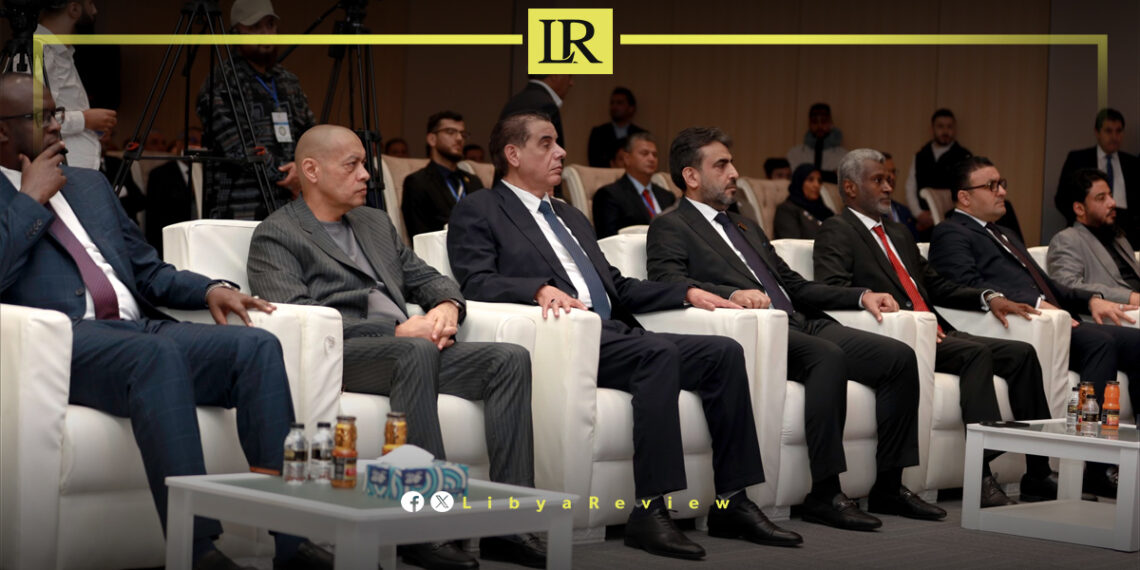The 4th edition of the Benghazi International Oil, Gas, and Energy Expo was inaugurated today by the Deputy Prime Minister of the Libyan Government-designate, Ali Al-Qatrani, alongside Minister of Electricity, Awad Al-Badri. The event, held in the city of Benghazi, featured participation from over 59 leading local and international companies specializing in renewable energy and the oil sector.
The expo was attended by several ministers of the Libyan Government, the Deputy Minister of Interior, Faraj Qaim, the Head of Internal Security, Major General Osama Al-Darsi, and the President of the National Authority for Development, Dr. Jibril Al-Badri, among other local and international company directors operating in the oil, gas, and energy sectors.
During his speech, Al-Qatrani welcomed the delegates from participating companies, emphasizing the significance of renewable energy in reducing fuel needs, lowering costs, and the importance of diversifying energy sources in Libya towards renewable alternatives.
Hosted under the auspices of the Ministry of Electricity and Renewable Energies, the Benghazi International Expo aims to highlight the importance of the energy sector in Libya, enhance cooperation among entities in this field, and support the transition to renewable energy sources.
Libya has been in chaos since a NATO-backed uprising toppled longtime leader Muammar Gaddafi in 2011. The county has for years been split between rival administrations.
Libya’s economy, heavily reliant on oil, has suffered due to the ongoing conflict. The instability has led to fluctuations in oil production and prices, impacting the global oil market and Libya’s economy.
The conflict has led to a significant humanitarian crisis in Libya, with thousands of people killed, and many more displaced. Migrants and refugees using Libya as a transit point to Europe have also faced dire conditions.
The planned elections for December 2021 were delayed due to disagreements over election laws and the eligibility of certain candidates. This delay has raised concerns about the feasibility of a peaceful political transition.
Despite the ceasefire, security remains a significant concern with sporadic fighting and the presence of mercenaries and foreign fighters. The unification of the military and the removal of foreign forces are crucial challenges.


